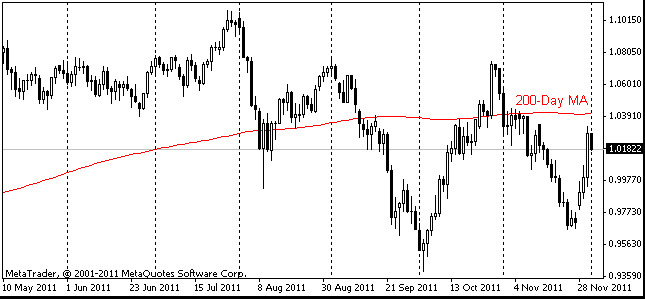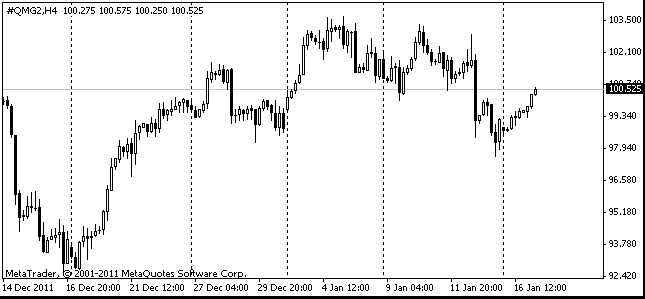EUR/usd
The single currency was on the decline yesterday morning, but the news from the USA once again reminded us that the situation across the Atlantic is also rather gloomy. The pressure over the euro has been provoking the change of the interest rate differential after the ECB cut the rate down to 0.75% at the beginning of the month. That made the euro one of the weakest currencies, forcing it to fall against most of its competitors. Most likely, the decline in the euro/dollar from 1.2260 down to 1.2175 in the morning hours yesterday was caused not so much by the growth of the dollar as by the weakness of the euro against the pound, yen and many others. However, the euro weakening couldn't gather momentum for two reasons. On the one hand, market participants are taking up their positions before Bernanke's speech to Congress today. Many consider that under the pressure of law-makers the Fed's head will hint at the willingness to carry out broader easing in the near future. The next fomc meeting is scheduled for 31 July-1 August, so everyone has great expectations of today's speech. However, we advise you to be cautious. It may well be the case that the August meeting won't bring any positive results, as it hasn't been long since Operation Twist was extended. Besides, the inflationary expectations in the USA, albeit on the decline, are still at their highest point compared to the levels registered at the previous episodes of easing. On the other hand, the weakening of the American currency was spurred by the poor report on retail sales. In June the sales volume fell by another 0.5% after the declines in April and May (0.2% each) and is now a bit above the level recorded last January. It's not surprising that the decline is triggered by the fall of oil prices. bears pushed down EUR/USD from 1.27 reported at the beginning of the month to 1.2161. This is a rather high speed of the decline for the slack summer season, so you shouldn't be surprised at the short covering now.

EUR/GBP
Traders and investors turned the sterling into a safety currency though as a rule the pound demonstrates a greater decline than the euro. The current situation has become possible due to the fact that now the entrance to the traditional safe havens (yen and franc) threatens to cause displeasure of the local CBs. Even the extension of QE programme, which was announced at the last meeting, doesn't help the pound. The deflation can formally untie BoE's hands to take up more active actions, but most traders have already realized that QE has just a limited effect on inflation and therefore don't hurry to sell the pound. EUR/GBP hits three-year lows. The perspective of the decline to 0.67, where trading was held from 2003 to 2007, doesn't look that fantastic now.

AUD/USD
In the dynamics of the aussie it's clearly seen that the market acts rather on expectations than on facts. In May we observed strong sales of the Australian currency, as the markets were expecting the long cycle of rate cuts by the RBA and a hard lending of the Chinese economy. Last month it became known that the Bank could take a break in the cycle of cuts, so the Aussie again found buyers and recouped 80% of its losses though the rate was reduced. Now the Aussie enjoys quite a good demand on the expectations that the Chinese government will be giving great help to its domestic economy. The drop below the parity proved to be unstable. Will the next reversal really take place above 1.07?

Oil
Just like the Aussie Oil prefers to move along the wide channel. In 2011 Oil was bought on the dips below 80 and sold at the growth above 110. The same behaviour seems to be observed this year as well. While the real economy only begins to feel the effect of the decrease in the Oil price reported from May till the end of June, the price of the commodity has already entered the phase of growth, which is largely contributed by the expectations of fresh incentives from the USA and China.
